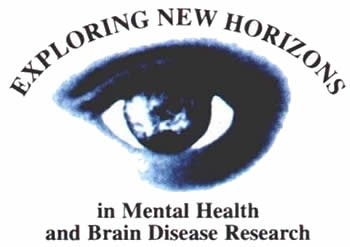NAME OF RESEARCHER
Irene Faiman
NAME OF SUPERVISOR
Dr Paul Shotbolt and Prof Allan Young
PROJECT TITLE:
A Study of Seizure Signatures
CLINICAL ACADEMIC GROUP:
Department of Psychological Medicine, Institute of Psychiatry, Psychology and Neuroscience, King’s College London
START & FINISH DATES:
01/02/2019 – 30/10/2022
PROJECT DESCRIPTION:.
My research has two main goals: 1) understanding the psychiatric hallmarks of seizure disorders, and 2) improving the recognition and diagnosis of these disorders.
As part of the first goal, I have studied the psychiatric profile of people with epilepsy and people with non-epileptic seizures, and specifically anxiety and depression, suicidal tendences, dissociative and somatisation tendences, and seizure characteristics. I have also studied their cognitive functioning. Additionally, I have conducted two studies specifically focused on suicidality in seizures disorder. I have investigated the main risk and protective factors of suicidality in a retrospective sample of 2500 people.
As part of the second goal, I have completed an investigation aiming to find new ways to diagnose epilepsy and non-epileptic seizures, as diagnostic delays are frequent in clinical practice. I have studied the patterns of electrical activity recorded non-invasively from patients’ scalps using electroencephalographic (EEG) recordings taken routinely during clinical appointments. The aim is to improve the diagnostic accuracy for people presenting with new seizures and allow them to access the appropriate treatment earlier. To guide and inform my study, I have also conducted and published an important systematic review summarising all the existing evidence on the topic so far. Through this review, I have identified a specific pattern in the EEG recordings of people with epilepsy, which appears consistently throughout several studies.
PROGRESS IN PAST YEAR:
In the past year I have focused on finalizing patient recruitment, data collection and performing statistical analyses for the research studies, and in particular for the cognitive and psychiatric study, and for two EEG studies.
For the cognitive and psychiatric study, I have finalized recruitment of 73 people with epilepsy or non-epileptic seizures from King’s College Hospital and South London and Maudsley Hospital. I have performed a single study visit with each of them to collect information on their cognitive and psychiatric characteristics. I have analysed the data using correlational analysis.
For the two EEG studies, I have completed data collection for 179 consecutive patients with a suspected diagnosis of epilepsy or non-epileptic seizures who underwent a brain recording (EEG) investigation at King’s College Hospital. I have analysed the data using EEG-specific methods combined with machine learning.
What this research has shown.
Results of the cognitive and psychiatric study revealed that people with epilepsy and people with non-epileptic seizures have distinct interaction between traumatic life experiences and cognitive switching ability, and between the number of medically unexplained somatic symptoms and vocabulary ability.
Results of the EEG study suggested that indices that were previously identified as promising diagnostic indicators have limited clinical validity for the classification of all patients with epilepsy or non-epileptic seizures but might be useful to diagnose a specific sub-group of patients. A subsequent search for alternative diagnostic markers uncovered the challenges involved and generated useful recommendations for further research.
Implications
Results of the cognitive and psychiatric study will be useful to better understand the causes and mechanisms of seizure disorders. They will also be very useful to plan future research.
Results of the two EEG studies make a relevant contribution to the knowledge body on biomarker research in epilepsy and non-epileptic seizures. They include one of the largest samples studied to date and implement a research design to go beyond investigation of group differences and test whether the prediction of diagnosis is possible for single individuals.
PUBLICATIONS & CONFERENCES ATTENDED:
1) We have published a systematic review on Epilepsy & Behavior, one of the main specialist journals concerned with epilepsy research. The publication can be found at the following link: https://www.epilepsybehavior.com/article/S1525-5050(21)00281-X/fulltext
Reference:
Faiman, I., Smith, S., Hodsoll, J., Young, A. H., & Shotbolt, P. (2021). Resting-state EEG for the diagnosis of idiopathic epilepsy and psychogenic nonepileptic seizures: A systematic review. Epilepsy & Behavior, 121, 108047. Doi: 10.1016/j.yebeh.2021.108047
2) We have published one of the two studies addressing suicide attempt risk in epilepsy and non-epileptic seizures. This is published in one of the most important peer-reviewed medical journals in the fields of neurology, neurosurgery, and psychiatry, which is under the umbrella of the British Medical Journal: https://jnnp.bmj.com/content/jnnp/93/8/895.full.pdf
Reference:
Faiman, I., Hodsoll, J., Young, A. H., & Shotbolt, P. (2022). Increased suicide attempt risk in people with epilepsy in the presence of concurrent psychogenic nonepileptic seizures. Journal of Neurology, Neurosurgery and Psychiatry, 93(8), 895–901. https://doi.org/10.1136/jnnp-2022-329093
3) I have exhibited the aforementioned work at the 4th International Conference on Functional Neurological Disorders in Boston, USA in June 2022.
4) To access the latest advances and research on EEG, biomarkers, and neuroimaging, I have attended the week-long annual meeting of the Organization for Human Brain Mapping (OHBM) in Glasgow, UK in June 2022.
